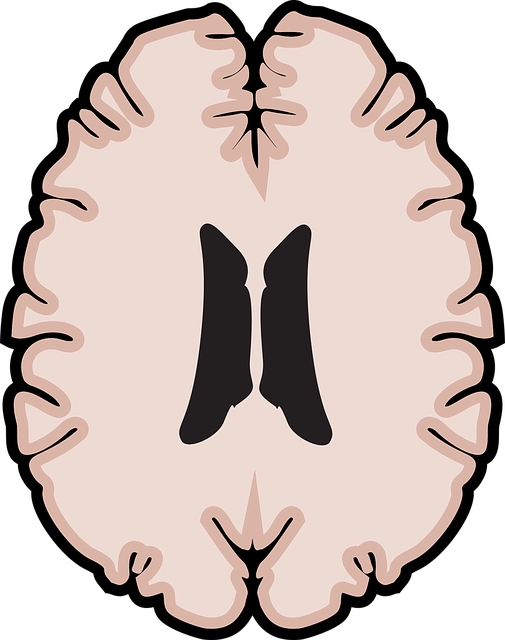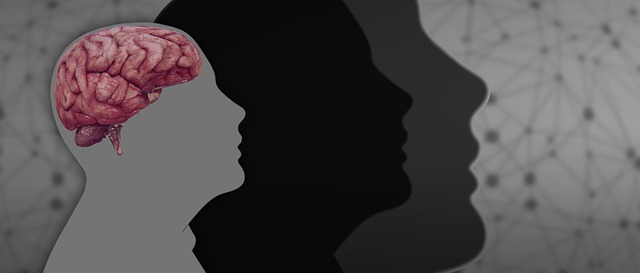Wheat Ridge Relationship Issues Therapy offers specialized counseling for individuals dealing with loss, grief, and bereavement, addressing complex emotional and relational challenges. This therapy combines evidence-based practices like Compassion Cultivation and Self-Awareness Exercises to build resilience, process intense emotions, and develop healthy coping strategies. By focusing on self-esteem, empathy building, and stress management, clients gain the tools to navigate their grief, foster healthier relationships, and advocate for their mental health needs, aligning with Mental Health Policy Advocacy. The safe, non-judgmental environment enables individuals to transform their trauma into opportunities for growth and healing.
Loss, grief, and bereavement are profound experiences that can deeply impact an individual’s well-being. This comprehensive guide explores these complex emotional challenges, offering a nuanced understanding of loss in all its forms. We highlight the pivotal role counseling plays in navigating these turbulent waters, focusing on strategies like Wheat Ridge Relationship Issues Therapy. Through this approach, individuals find resilience and healing, gaining valuable tools to process grief and rebuild their lives post-loss.
- Understanding Loss, Grief, and Bereavement: A Comprehensive Overview
- The Importance of Counseling in Navigating Emotional Challenges
- Wheat Ridge Relationship Issues Therapy: Addressing Complex Dynamics
- Unlocking Healing Processes: Effective Strategies for Counselors
- Finding Hope and Resilience: Supportive Approaches for Bereaved Individuals
Understanding Loss, Grief, and Bereavement: A Comprehensive Overview

Loss, grief, and bereavement are complex emotional experiences that can significantly impact an individual’s well-being. Understanding these concepts is essential for anyone seeking support or considering Wheat Ridge Relationship Issues Therapy. Loss refers to the absence of something valued, whether it be a loved one, a relationship, or a significant life change. Grief is the natural response to loss, characterized by intense emotions such as sadness, anger, and guilt. Bereavement, on the other hand, is the period after a loss during which individuals process their feelings and adjust to life without what they have lost.
These interconnected processes can be challenging to navigate, especially when coupled with existing Wheat Ridge relationship issues. Effective therapy often involves exploring these emotions, developing healthy coping mechanisms, and learning conflict resolution techniques to manage difficult interactions. Moreover, boosting one’s confidence during this vulnerable time can empower individuals to advocate for their mental health needs, aligning with important aspects of Mental Health Policy Analysis and Advocacy.
The Importance of Counseling in Navigating Emotional Challenges

Navigating loss, grief, and bereavement can be a complex and challenging journey, often leaving individuals feeling overwhelmed by intense emotions. This is where professional counseling steps in as a vital tool for healing. Wheat Ridge Relationship Issues Therapy offers specialized support to help individuals process their feelings, understand their emotional challenges, and develop healthy coping mechanisms.
Counseling provides a safe and non-judgmental space, allowing clients to explore their grief, whether it stems from the loss of a loved one, a relationship break-up, or other significant life changes. Through evidence-based practices tailored to individual needs, therapists assist in managing stress and anxiety associated with bereavement. Moreover, they foster cultural sensitivity, ensuring diverse perspectives are considered during this delicate process. Risk assessment is also integral to mental health professional’s practice, enabling them to provide the best care while managing potential challenges that may arise.
Wheat Ridge Relationship Issues Therapy: Addressing Complex Dynamics

Wheat Ridge Relationship Issues Therapy offers a specialized approach to addressing complex dynamics that often accompany loss, grief, and bereavement. This type of therapy recognizes that when someone experiences the death of a loved one, various emotional and relational challenges can arise, which may not be easily resolved through general counseling. It delves into the intricate web of feelings, including guilt, anger, and profound sadness, that can affect individuals in their grief journey.
Through this therapeutic process, clients are guided to explore self-esteem improvement, develop coping skills for managing intense emotions, and learn empathy building strategies. The focus is on understanding the unique dynamics within relationships, whether with a partner, family members, or friends, as these connections play a pivotal role in one’s ability to navigate the complexities of grief. By addressing these relationship issues, individuals can find support in processing their loss while fostering healthier interpersonal interactions.
Unlocking Healing Processes: Effective Strategies for Counselors

In the realm of Wheat Ridge Relationship Issues Therapy, counselors play a pivotal role in guiding individuals through the intricate healing processes following loss, grief, and bereavement. Effective strategies often involve unlocking deep-seated emotions and fostering self-awareness, which are crucial components for meaningful recovery. Counselors can facilitate this by creating a safe, supportive space where clients feel empowered to explore their feelings without judgment.
One such powerful tool is Compassion Cultivation Practices, designed to enhance emotional resilience and foster compassionate connections with oneself and others. Additionally, Trauma Support Services cater to the unique needs of individuals grappling with complex trauma stemming from loss. Self-Awareness Exercises encourage introspection, helping clients gain insights into their coping mechanisms and develop healthier strategies for navigating emotional landscapes. Through these evidence-based methods, counselors enable individuals to transform their grief experiences into opportunities for personal growth and healing.
Finding Hope and Resilience: Supportive Approaches for Bereaved Individuals

For those navigating loss, grief, and bereavement, finding hope and resilience is a crucial step in the healing process. Wheat Ridge Relationship Issues Therapy offers a supportive environment where individuals can explore their emotions and develop coping mechanisms tailored to their unique experiences. Through evidence-based practices, therapists guide clients in cultivating self-awareness exercises that help them understand and manage their feelings. This journey involves delving into personal strengths and resources, fostering mental wellness through journaling exercises, and learning effective strategies for stress management. By embracing these approaches, bereaved individuals can find the strength to adapt and thrive despite their circumstances.
The therapeutic process is designed to be nurturing and non-judgmental, allowing clients to express themselves openly. Mental health professionals in this field are trained to provide guidance while respecting individual boundaries. A risk assessment for mental health professionals ensures a safe and supportive space where deep emotions can be processed and healed. This holistic approach empowers individuals to rebuild their lives with renewed hope and resilience.
Grief and bereavement counseling plays a pivotal role in helping individuals navigate complex emotional landscapes after loss. By understanding the unique aspects of grief, counselors can unlock healing processes and foster resilience. The comprehensive strategies outlined in this article, including the transformative potential of Wheat Ridge Relationship Issues Therapy, equip professionals to support bereaved folks as they find hope and navigate their journeys towards healing.














